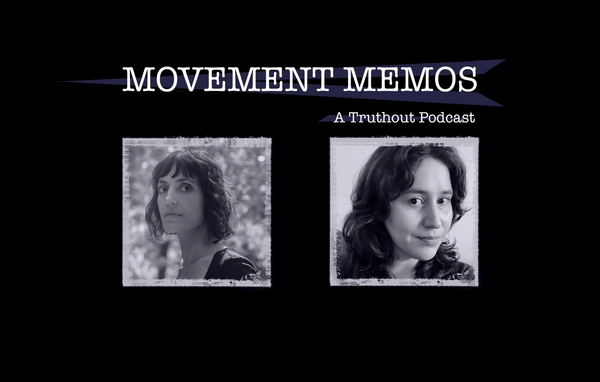A Major Victory In The Fight to Erase Chicago's Gang Database
"We saw a window of opportunity," says organizer Xanat Sobrevilla.
This month, Chicago’s interim Community Commission for Public Safety and Accountability voted to call off plans for a new Chicago gang database. This vote is a major victory for Chicago organizers, who have been waging a campaign to “Erase the Database” for years. In 2019, Chicago’s former inspector general released a report revealing that 134,242 people were listed in the database as gang members. About 95% of those police had listed as gang members in the database were Black or Latinx. The youngest person police entered into the database was nine years-old, and the oldest was 75. As Alyxandra Goodwin wrote in 2017, “The gang database is an excuse to justify further surveillance and excessive force against Black and Brown folks in this very sensitive time regarding citizenship.”
Like most functions of law enforcement, Chicago’s gang database has been governed by the whims and assumptions of local cops. In the course of my own organizing in Chicago, I often heard stories about young people who were stopped at random by police and harassed. Amid that harassment, cops would often ask young people where they lived. In some cases, police would use the address of a young Black or brown person to extrapolate a presumed gang affiliation and then enter that affiliation into the gang database. The victims of this classification system were not notified of their status, but the Chicago Police Department did share its faulty data with Immigration and Customs Enforcement (ICE), putting members of Chicago’s immigrant communities at greater risk, given that Chicago’s Sanctuary City provisions do not protect people with alleged gang affiliations. In 2017, ICE raided the home of Wilmer Catalan-Ramirez based on faulty information from CPD’s database and took Catalan-Ramirez into custody. Those events led to a lawsuit waged by Black Youth Project 100, Organized Communities Against Deportations (OCAD), and the MacArthur Justice Center as part of the larger, united struggle to erase the database.
In the wake of the inspector general’s 2019 report, the Chicago police department vowed to create a new, more accurate gang database. Former Chicago Mayor Lori Lightfoot repeatedly pushed for a reformed version of the database, while then mayoral candidate Brandon Johnson vowed to “erase the racist gang database and remove this source of racial profiling that leads to frequent, unproductive police interactions and harms residents’ ability to find housing and jobs.” Johnson was elected in April of 2023. Organizers have fought the creation of a new database, insisting that officials erase the old database and pay reparations to people the old system labeled as gang members. The Community Commission for Public Safety and Accountability’s vote against the creation of a new database is not the end of this struggle, but it does mark a historic victory for organizers fighting to erase the database. I recently connected with BYP 100 organizer Tynetta Hill-Muhammad and OCAD organizer Xanat Sobrevilla about this win and how the campaign got here. Civil rights attorney Sheila A. Bedi also weighed in about the legal strategy of organizers who refused to settle for a newly “reformed” version of the old database.
Kelly Hayes: The erasure of Chicago's gang database is a historic victory and one that's been years in the making. Can you tell us a bit about the database, how it functioned, and how the campaign to erase the database took shape?
Tynetta Hill-Muhammad: The formal name of the Chicago gang database is the Criminal enterprise Information System or CEIS. Essentially the system works by utilizing surveillance and coercive measures for people who CPD deems as criminals to be entered into a system or database. CPD can do this using their own discretions meaning that 95% of folks on the database are Black and Brown folks. Things like tattoos, being/living in certain areas at times that are deemed “inappropriate” by CPD, markings, or colors. CPD used surveillance of social media, videos, or audio devices to also deem someone admissible to the gang database. People can “voluntarily” get on the gang database through admittance of activity and often done through coercive means. Information is shared with the FBI, ICE and the CIA so then you’re not able to apply for certain jobs, or federal aid, or apply for housing or apply for school (university level).
The Campaign started in January 2017 with the idea of pushing for a sanctuary city not just in name through the Welcoming City Ordinance (the WCO still let ICE persecute folks who had interactions with CPD to my understanding) but in practice. It started with BYP100, Organized Communities against Deportation, and Mijente with the demands to protect folks from immigration enforcement (which was a big things since Trump was in office), get rid of the gang database and create alternatives to invest in Black and Brown folks communities.
Xanat Sobrevilla: As Tynetta mentioned, this came out of the Expanded Sanctuaries campaign. BYP100 and OCAD and Mijente's attempt to challenge this notion of sanctuary as something the city could only do for immigrants. We wanted to recognize that there is no concept of sanctuary/safety for Black and brown people in Chicago (immigrant or not) if we did not address the many other ways we get criminalized and harmed.
KH: What kind of tactics were deployed, over the course of this campaign, and what do you think ultimately made this win possible?
THM: Tactics wise the campaign did petitions, community events, knocked on doors, and had a whole lawsuit (that was settled).
XS: When Trump came to power we wanted to focus on local stuff. We wanted to find ways to build solidarity and power in Chicago. Lawsuits, block parties, teach-ins, FOIA clinics for young people to find if they are on it, Op-eds, and all that. We started with a temporary ordinance in 2018 that never really took off but quickly we realized it was too much work to try to temporarily block it and thus we drafted the latest version that would get reparations and Peacebook.
In March 2017, an undocumented person, Wilmer Catalan, was detained in a very violent raid. It was part of a series of ICE raids in Chicago. We ended up working in a public campaign with his partner to get him out after ICE said this was a two week Gang Operation. With some luck and crucial support from folks like Sheila Bedi we managed to uncover that Wilmer had been placed in the gang database twice in non-arrestable situations in opposing gangs. We saw a window of opportunity and Wilmer sued the City as well as ICE (and the detention center he was at). That allowed us to learn more about the gang database and give it a public platform.
Sheila A Bedi: This is a win that happened because the organizers decided to dismiss the class action lawsuit that would have just built a better database and was giving the city cover to ignore organizer demands. Had this been a lawyer/lawsuit driven campaign, Chicago would currently have a constitutionally compliant shiny new database/racial profiling tool.
KH: This campaign addressed the well-being of people being targeted by ICE, in addition to other Chicago residents, and that feels important right now, given that some political forces are trying to pit longtime residents and migrants against one another. Can you say a bit about the solidarity and analysis of shared struggle that drove this campaign?
XS: As we were already in talks with BYP100 on Expanded Sanctuary we all saw an opportunity to tackle the gang database together.
THM: Mijente, OCAD and BYP100 really understood that the gang database was a tool of white supremacy and criminalized Black and Brown folks. They united their bases and communities under that banner and the end of surveillance tools that target their communities very specifically.
This win is amazing and in some ways expected because this campaign has been labored on by so many and in other ways came as surprise. However, the campaign work isn’t completed we still need to get the Peacebook ordinance passed, ensure that CEIS isn’t going to be reformed or utilized in some other ways, get rid of other surveillance technologies that criminalize Black and Brown folks like ShotSpotter, and provide reparations for all the folks harmed by the gang database.




